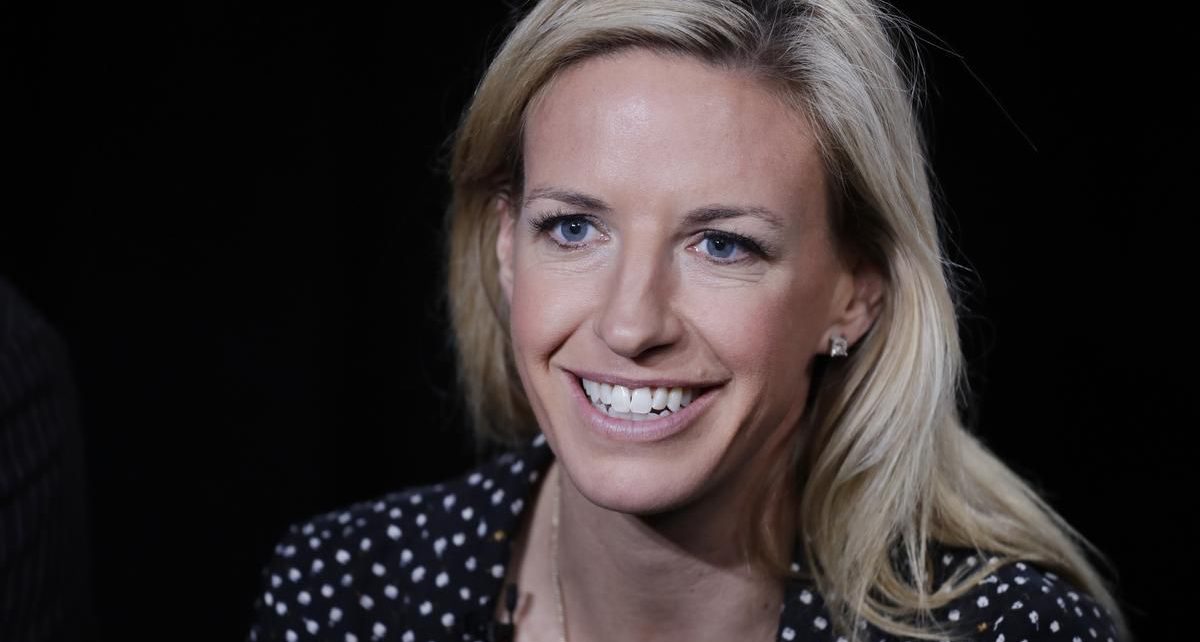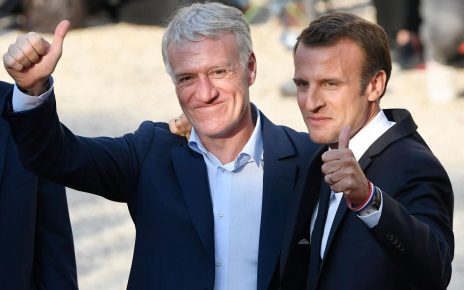MOSCOW—The men’s World Cup is notable for women.
Fox’s Aly Wagner and Telemundo’s Viviana Vila are the first in-match analysts on U.S. television for soccer’s showcase. BBC’s Vicki Sparks is making a similar breakthrough in Britain and ZDF’s Claudia Neumann in Germany.
“It took me 10 years. It was very disappointing that it took so much time,” Vila said of her advance. “It truly was draining, unfair and ungrateful. It shouldn’t be that way. But it made me stronger, to keep learning and improving in my work. I’m better now to face whatever comes my way.”
Former England captain John Terry caused a flap during Sparks’ call of the Portugal-Morocco game when he posted a video of a TV screen to Instagram and added the words: “Having to watch this game with no volume.” Terry deleted the post and wrote he meant there was no audio in his house when he returned from the Maldives.
No matter the interpretation, it is clear women have had a difficult path gaining roles in sports broadcasts beyond studio hosts and sideline reporters. Play-by-play and colour jobs remain nearly universally the domain of men.
“Women traditionally have kind of been accepted into their hosting role, whether or not they were the strongest candidate, because for a long period of time there was just simply the idea that it was enough to look good on television. It didn’t necessarily imply somebody being an expert,” said Kate Abdo, Fox’s start-of-the-day studio show anchor in Red Square. “For women to break into that domain, which traditionally has been very, very male, has been more difficult.”
Read more:
‘Never do this to a woman’: Men harass two female sports reporters at World Cup
Wagner, a national team midfielder from 1998-2008, was a game analyst for Fox at the 2015 Women’s World Cup and called 10 of Fox’s 48 group-stage telecasts this year from the network’s Los Angeles studios, paired with Scottish broadcaster Derek Rae.
“It wasn’t that I set out to end up calling a men’s World Cup match, but my path has led me here now and I’ll be extremely proud doing it,” Wagner said. “Hopefully I can prove it’s about my effort and my work and my passion and my commitment and my love for the game that comes through when I call the match as opposed to it having anything to do with being the first female.”
Vila covered news and sports on radio and got a break when a game analyst failed to show for a match and noted Argentine play-by-play man Víctor Hugo Morales asked her to fill in. She impressed and earned more broadcasts.
“There was a lot resistance at the start. Some responded positively,” she said. “But I needed to work harder … to gain credibility.”
Gayle Gardner became the first woman to call Major League Baseball play-by-play when she subbed on a Colorado broadcast of a Rockies against Cincinnati in 1993. Suzyn Waldman has been the colour commentator on New York Yankees’ radio since 2005, and Jenny Cavnar has filled in on Rockies radio this year. Jessica Mendoza has been an ESPN MLB analyst since 2015.
After calling college basketball on ESPN for more than a decade, Doris Burke became the network’s regular NBA game analyst this season. Stephanie Ready became the NBA’s first woman club broadcast game analyst with the Charlotte Hornets in 2015-16, and Sarah Kustock moved up from courtside reporter to game analyst on Brooklyn Nets broadcasts last season.
AJ Mleczko has announced hockey for NBC at Olympics since 2006 and started on its NHL broadcasts in March. Cassie Campbell calls game for Sportsnet in Canada and is the first woman colour commentator on CBC’s Hockey Night in Canada.
Kyndra de St. Aubin is the colour analyst for Minnesota’s local Major League Soccer telecasts
In perhaps the biggest breakthrough, Beth Mowins last season became the first woman to regularly call play-by-play in the NFL, working for ESPN and CBS. Gayle Sierens had worked a game for NBC in 1987.
“That may have been the last barrier to break,” Mowins said. “I think more and more people are accustomed now to women in the booth. I think there’s a younger generation, that’s all they know — is their mothers played sports and their sisters and their girlfriends all played sports. And now their daughters want to play sports, too, and are sports consumers and fans and viewers.”
Neumann, who has worked for ZDF since 1999, broadcast at the 2011 Women’s World Cup. She was a target of social media criticism when she commented on matches during the 2016 European Championship and again this year.
ZDF sport director Thomas Fuhrmann estimated 10-20 per cent of the audience was not accepting of a woman, a segment he said “wants to watch the soccer game and drink beer, and to make it the perfect cliche, eat the bratwurst and listen to a man’s voice. It’s completely irrational.”
“While they get a lot of attention, these haters, as we call them in Germany, I think it’s a more general issue of our society,” Fuhrmann said. “It’s not only sports. It’s more that something is changing.”
Paul Nicholls, Terry’s agent, did not respond to an email about his client’s Instagram posts.
Abdo thinks the U.S. audience may be more accepting of women.
“A lot of the TV executives and particularly Fox have definitely put themselves in the forefront at making sure they give women a strong voice in soccer. Perhaps in the U.S. that female voice has been seen as more credible and hasn’t had to fight for the credibility quite the same way because the woman’s game has an elevated status in comparison to what it has in Europe.”
Still, she has some trepidation about expanding beyond soccer.
“You can very quickly undo a lot of work and a good reputation if as a woman you position yourself at the front of a sport’s coverage and you aren’t as a good as another man,” she said. “I think you need to be as good as if not better than any man in your field just to be able to earn that right to be there.”






